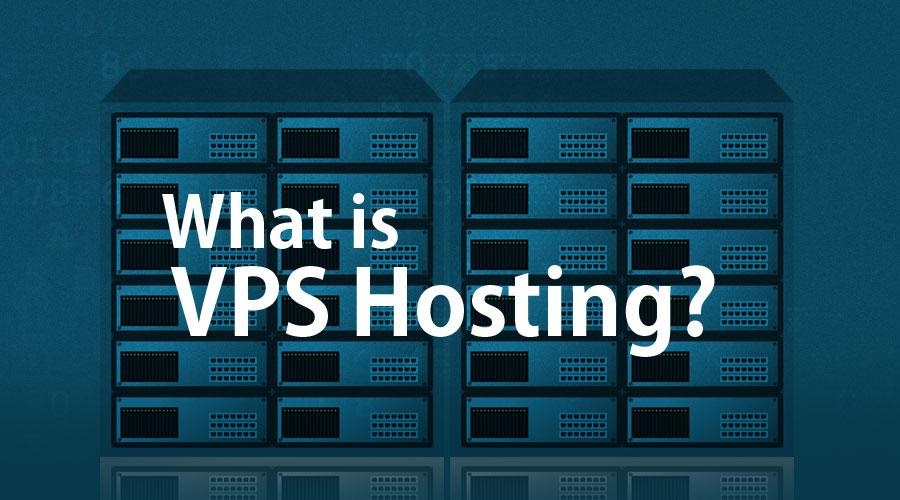VPS Hosting vs. Cloud Hosting: What’s the Difference?
With the rise of remote and hybrid working models, the growing reliance on the internet, and the increasing demands on business technology, many people—especially those new to servers and hosting—find it challenging to distinguish between VPS and cloud hosting. While the two share some similarities, they operate and are managed very differently, each offering unique benefits and limitations suited to specific projects. So, what’s the difference between VPS and cloud hosting? If you’re torn between the two, keep reading to find out which is best for your venture.
What Is VPS Hosting?

A VPS (Virtual Private Server) is a hosting service that divides a single physical server into multiple virtual machines. This setup provides many of the benefits of a dedicated server but at a more affordable price. With a VPS, your sites won’t be affected by other users on the same physical server, offering a middle ground between shared and dedicated hosting.
How Does VPS Hosting Work?
VPS hosting uses virtualization technology to split one physical server into multiple virtual servers. While the physical server is shared, your virtual portion is secure, with dedicated resources like CPU, RAM, and storage exclusively allocated to your project. This ensures consistent performance, even during traffic spikes, unlike shared hosting, where unexpected demand from other users can cause downtime.
Benefits of VPS Hosting
If you’re considering VPS hosting, here are the key advantages:
- Cost-Effectiveness: VPS hosting is more affordable than dedicated or cloud hosting while offering better security and resources than shared hosting. Features include full root access, unlimited bandwidth, and ISO 27001-certified security.
- Control and Customization: With an unmanaged VPS, you get root access, allowing you to install applications, configure settings, and choose your operating system.
- Speed: Unlike shared hosting, your VPS doesn’t share bandwidth, ensuring faster performance.
- Scalability: You can upgrade your VPS to add more CPU, RAM, or storage as your project grows.
- Security: Virtualization technology isolates your data from other users, and add-ons like Cyber Protect enhance redundancy and security.
- Dedicated Resources: Your VPS has exclusive access to its allocated CPU, RAM, and storage, ensuring consistent performance.
Disadvantages of VPS Hosting
While VPS hosting has many benefits, there are some drawbacks:
- Limited Flexibility: Upgrading resources isn’t instant, making it less suitable for projects with fluctuating demands.
- Cost Concerns: Pricing can be a barrier for beginners or those unsure of their resource needs.
- Technical Knowledge Required: Managing an unmanaged VPS requires technical expertise for configuration, updates, and maintenance.
- Scalability Limits: If you max out your VPS, you’ll need to migrate to a more powerful solution like a cloud or dedicated server.
What Is Cloud Hosting?
Cloud hosting is a premium hosting solution that uses a network of virtual and physical servers to host websites and applications. Instead of relying on a single physical server, cloud hosting distributes resources across multiple servers, ensuring high availability and reliability. It’s ideal for a variety of applications, including websites, file sharing, software testing, and data analysis.
Cloud hosting comes in four types: Public Clouds, Private Clouds, Hybrid Clouds, and Multi-clouds.
How Does Cloud Hosting Work?
Cloud hosting uses a network of interconnected virtual servers that function as a single system. Resources are replicated across multiple servers, so if one server fails, another takes over seamlessly. This setup ensures minimal downtime and high reliability. Cloud hosting can be delivered as Infrastructure-as-a-Service (IaaS), Platform-as-a-Service (PaaS), or Software-as-a-Service (SaaS), depending on your needs.
Benefits of Cloud Hosting
Cloud hosting offers several advantages:
- Reliability: High uptime is guaranteed, as another server takes over if one fails.
- Flexibility: Resources can be scaled up or down instantly to meet demand.
- No Geographical Ties: Access your cloud from anywhere, without being tied to a specific physical server.
- Cost-Efficiency: Pay only for the resources you use, avoiding unnecessary expenses.
- Collaboration: Remote teams can access and work on the same files simultaneously.
- Automatic Backups: Data is backed up across multiple servers, ensuring quick recovery.
Disadvantages of Cloud Hosting
Despite its benefits, cloud hosting has some drawbacks:
- Higher Cost: Cloud hosting is generally more expensive than VPS hosting, especially for small businesses.
- Internet Dependency: No internet connection means no access to your cloud.
- Less Control: You have limited control over hardware and software settings compared to a VPS.
VPS Hosting vs. Cloud Hosting: Which Should You Choose?
Choosing between VPS and cloud hosting depends on your project’s needs, budget, and preferences:
- VPS Hosting: Ideal for projects with predictable resource needs and a limited budget. It offers dedicated resources, strong security, and full control but lacks the instant scalability of cloud hosting.
- Cloud Hosting: Best for projects with fluctuating resource demands or those requiring high availability. It offers flexibility, reliability, and automatic failover but can be more expensive.
Which Is Better: Cloud Hosting or VPS Hosting?
The answer depends on your specific requirements:
- Cloud Hosting: Offers higher uptime, instant scalability, and ease of use, making it ideal for large or resource-intensive projects.
VPS Hosting: Provides cost-effective, secure, and customizable hosting for smaller projects or those with stable resource needs.
Is VPS Cheaper Than Cloud Hosting?
Typically, yes. VPS hosting is more affordable than cloud hosting, but the cost difference depends on the provider and the resources you need. While VPS offers excellent security and control, cloud hosting provides unmatched flexibility and reliability.
Conclusion
Both VPS and cloud hosting have their strengths and weaknesses. VPS hosting is a cost-effective, secure option for smaller projects, while cloud hosting offers unparalleled scalability and reliability for larger or more dynamic ventures. Once you’ve determined which type of hosting suits your needs, explore Progressive Robot’s range of affordable VPS and Cloud Hosting packages. Need help deciding? Contact our sales team for expert advice!







